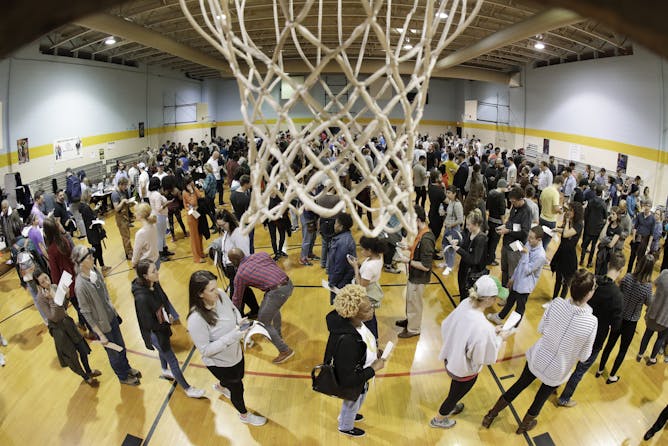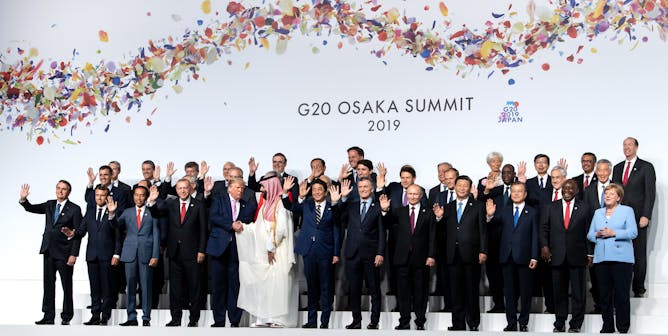|
Welcome to our new Thursday newsletter, a roundup of stories about politics and the 2020 election that we think will interest, challenge and even provoke you.
Our goal on the politics desk is to provide readers like you with greater context for the news of the day. We won’t tell you what to think of something – we are independent and nonpartisan – but we will arm you with the facts and history to help you evaluate what’s going on in the often confounding and sometimes crazy world of politics.
This week we’ve got a story that presents the surprising fact – at least to those of us who aren’t lawyers or constitutional scholars – that “the framers of the Constitution never mentioned a right to vote,” nor did they add one to the Bill of Rights. We have an analysis of the various moves President Donald Trump has made under the banner of his “America First” foreign policy. There’s a history of a surprisingly QAnon-like political movement that elected some members to the U.S. Congress 200 years ago, and a description of the enormous burden mail-in voting means not just for the Post Office, but for the approximately 8,000 local election offices across the country.
If you prefer not to get this newsletter, it’s easy to unsubscribe. Just click the button below. But we hope you’ll stay subscribed.
Opt-out
|

Voters in Nashville, Tennessee, faced long lines in March 2020.
AP Photo/Mark Humphrey
Morgan Marietta, University of Massachusetts Lowell
The framers of the Constitution never mentioned a right to vote. They didn't forget. They intentionally left it out.
|

As president, Trump has cultivated close relations with autocratic leaders while distancing the U.S. from its traditional allies in Europe and Asia.
Bernd von Jutrczenka/picture alliance via Getty Images
Klaus W. Larres, University of North Carolina at Chapel Hill
In 2016 Trump promised to 'shake the rust off America's foreign policy.' Four years later, it's clearer what that looks like: a US that sits on the sidelines of world crises and collaborations alike.
|
|
|
-
Sophie Bjork-James, Vanderbilt University
In the 1820s, an anti-Masonic conspiracy theory dominated politics in the Northeast and even birthed its own political party.
-
Jennifer Selin, University of Missouri-Columbia
To carry out an election by mail, hundreds of thousands of state and local offices and employees across the US must make sure that ballots are processed in a fair, consistent and timely manner.
-
Sumit Ganguly, Indiana University
Indian Americans constitute a mere 1.5% of the population, but their impact on American politics can be disproportionate, a political scientist argues.
|
|